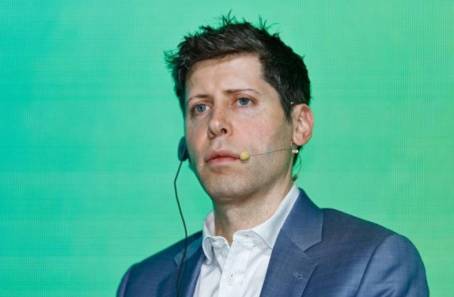- Sam Altman has said that Elon Musk is wrong in saying that OpenAI prevents investors from putting money into competing companies.
- “That’s not true,” Altman said on Thursday in a formal statement to a judge in California.
- He said investors were only informed that they would lose access to OpenAI data if they bought in a competitor.
Sam Altman has directly disputed an accusation now at the center of Elon Musk’s federal racketeering lawsuit against him: Musk’s claim that OpenAI investors must agree to a fund-no-competitor “edict.”
Altman said in a sworn statement to the judge handling Musk’s case, which was first filed in February 2024, “That claim is not true.”
The CEO of Tesla and the leader of Dogecoin is charging Altman of teaming up with Microsoft to unfairly eliminate competition. This includes preventing OpenAI’s outside investors from putting money into rival AI companies during a funding round that ended in the fall.
Altman made a statement against Musk’s request for an immediate halt to OpenAI’s activities.
If the judge agrees, the injunction would stop OpenAI from making investors promise not to invest in other AI companies and would halt its change from a charity to a for-profit organization.
“I didn’t inform any investors in the October 2024 funding round that…”
their ability to invest in OpenAI was subject to that condition, nor to my knowledge did anyone else at OpenAI,” Altman said in the page-long statement.
Altman told US District Judge Yvonne Gonzalez Rogers in Oakland that there were some restrictions, but they were minor and not as serious as Musk stated.
Investors who had secret information from OpenAI were warned that they would lose access if they invested actively in OpenAI’s rivals, Altman told the judge.
“That restriction is necessary to protect against the misuse of OpenAI’s competitively-sensitive information, and I understand it is industry standard for that reason,” Altman’s statement said.
Altman stated that he did not inform investors that if they decided to support Musk’s xAI or any other rival, they would lose the chance to invest in OpenAI.
Musk’s accusation that Altman, who used to work with him but is now his competitor, was pressuring OpenAI investors to accept a ban on investments was discussed in detail during a court hearing on Tuesday with Judge Gonzalez Rogers.
The two guys helped start OpenAI in 2015. Musk spent $44 million in the business before they had a disagreement three years later.
Musk’s lawyer, Marc Toberoff, claimed on Tuesday that OpenAI’s major funders had to agree to an investment ban in order to invest, and this wasn’t only for the most recent funding round. He argued this was a violation of federal antitrust laws.
The Biden administration’s Department of Justice and Federal Trade Commission said that a ban like that would break federal trade law, according to Toberoff.
Altman’s company is considering raising new funds that could increase its value to $340 billion, even though it claims to be a charity, Musk’s lawyer informed the judge.
“OpenAI, which already has 70% of the market with Microsoft’s help, is trying to eliminate their competition early on,” he said.
In response to Musk’s statement at the hearing on Tuesday, lawyers for Altman and Microsoft said that OpenAI’s backers were not asked to avoid competing companies.
Altman’s lawyer, Sarah Eddy, informed the judge that some clients had invested in both xAI and OpenAI.
Some investors in OpenAI decided that if they became active investors or gained decision-making power in competing companies, they would stop receiving certain confidential information from OpenAI. “That is the agreement based on the evidence,” Eddy said to the judge.
The judge did not say when she would decide on the planned injunction.
Altman and his co-defendants, which include OpenAI, Microsoft, OpenAI co-founder Gregory Brockman, and billionaire Reid Hoffman, want the case thrown out. A meeting about the dismissal motions is scheduled for May 28.
Lawyers for Musk and Altman announced on Tuesday that they could be ready for trial by the end of 2026 at the earliest.
Correction: February 6, 2025. An earlier version of this story had the wrong date for when Elon Musk’s case was first filed. It was in February 2024, not March.
What do you say about this story? Visit Parhlo World For more.


